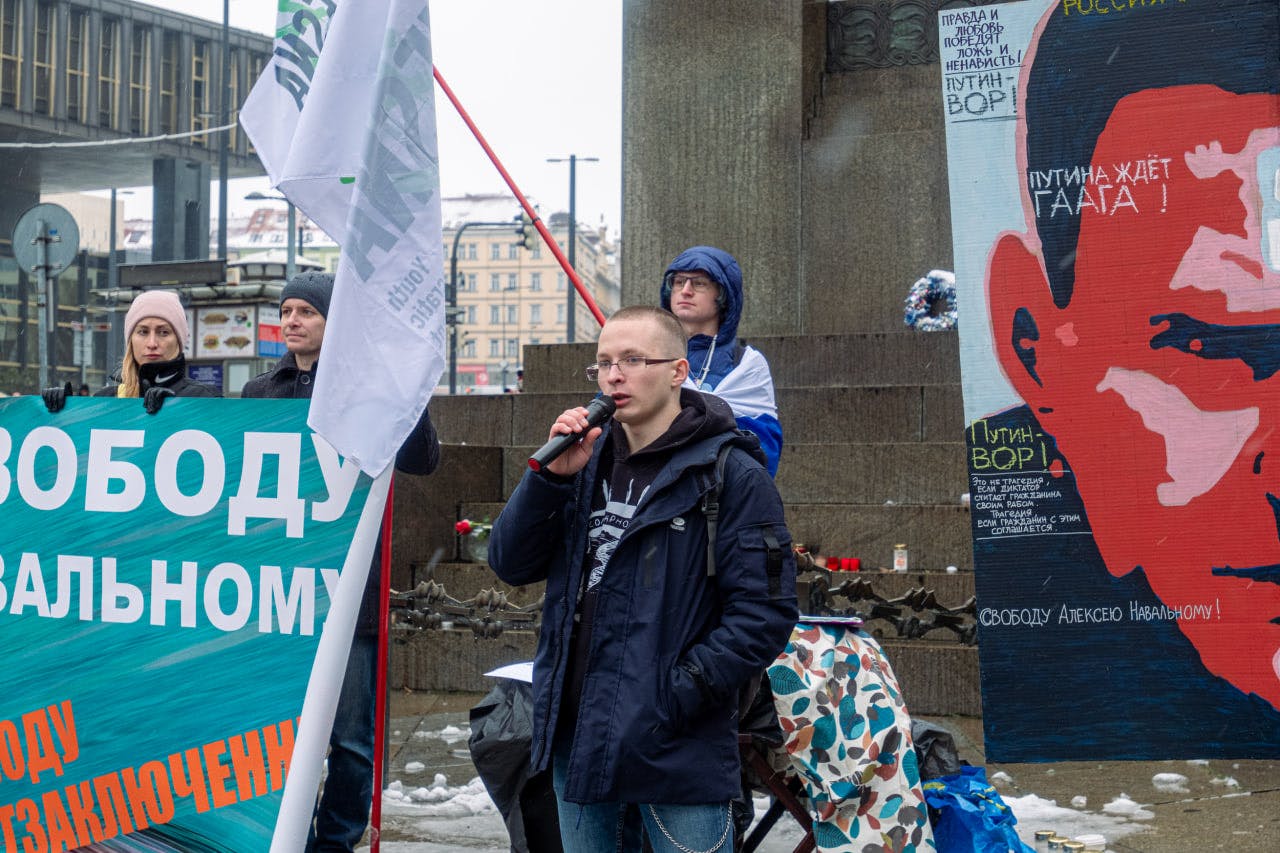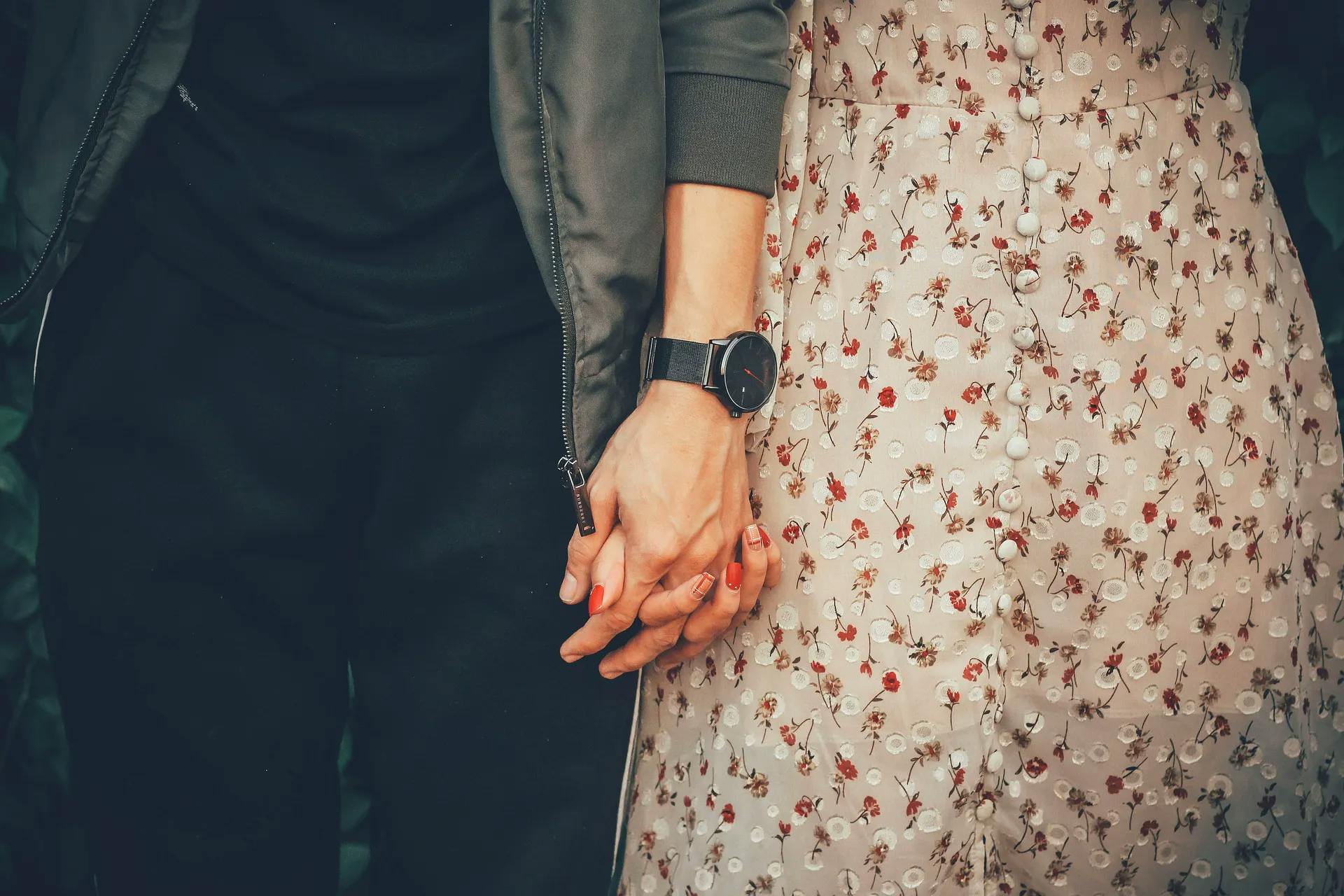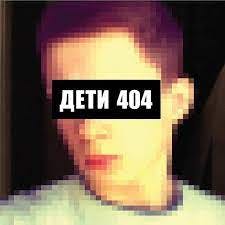Kyš (Andrey)
...nevzdávejte se a nezoufejte, dělejte to, co považujete za správné. Rusko určitě bude svobodné.


Justin (Pavel) Romanov is the main character of the documentary "Children-404", which focused on the lives of Russian LGBT Youth. It was directed by Askold Kurov and Pavel Loparev in 2014. Almost everyone who participated in the movie preferred to stay behind the scenes, justifiably fearing repercussions. Justin was one of the three people who consented to appear openly in the movie.
Please tell us about yourself and how you came to participate in the movie "Children-404"?
I was born in Ulyanovsk, in an ordinary family. I realized that I was gay when I was 13-14 years old, and after that I started being bullied at school. Classmates would throw coins at me, and teachers lowered my grades. There were many other things I do not want to remember. My relatives did not understand me. Then, as a naive teenager, hoping to get some protection, I wrote a letter to Dmitry Medvedev, who was, at that time, the President of Russia, on the kremlin.ru website. I told him what difficulties my gay peers and I were facing. I asked for help and institutional changes that could alleviate the situation.
Instead of a response, my mother and I were summoned a couple of months later for a conversation at the regional department of internal affairs. At that moment I realized that I was not going to be protected by the state.
Also at that time, in 2010-2011, a wave of protests began in Russia, which I joined. I was the only one in our city who was going to these protests with a rainbow flag. When I was 17 years old, in 2012, I moved to Moscow on my own, hoping that the situation would be better there, that the city was more liberal, and there would be an opportunity to study and live.
I joined local rallies where I was one of the youngest LGBT activists. At one of those rallies supporting Navalny in 2013, I showed up again with a rainbow flag, and I met documentary filmmaker Askold Kurov, who invited me to star in his movie.
Did you have any fear of publicity considering the repression of LGBT people in the country?
No, because I believed, and still believe, that we can change the situation in the country. Ever since I realized I was gay, I never hid it. After I moved to Moscow, there was a lot of harassment from the local school administration. They wouldn't let me attend classes, they lowered my grades to such an extent that even The New Times did their own investigation about it and wrote an article about me.
I never wanted to hide my sexuality, who I was. And I wanted to fight for people like me to be given equal rights in Russia.
How did the filming process go? How did you feel about it?
It was tough for me to go through the things shown in the movie, like being taken to the police station or being attacked by homophobes at school. But I had been going through this hell before this movie, and finally I had the opportunity to show the public how I live my life and what problems all LGBT teenagers and I face in Russia.
How did you feel when the movie was released?
At the time the film was released, I had already moved to Toronto, and the movie was shown here at the Hot Docs festival. During the screening, I felt a lot of support from the LGBT community. I believed that because of my experience people in the West would know how LGBT people live in Russia and that my struggle and my activism were not for nothing.
I also realized that the Western community really has no idea about the terror that is going on in Russia.They don’t know how the LGBT community and people in general are oppressed there. I think the movie opened their eyes at least a little bit.
Why do you think people in the West, particularly Canada, are more open to the LGBT community?
I think it is a matter of education, the availability of information, and the political system.
Here people have the opportunity to pursue their rights through political institutions and mass media. As a result, society has realized that gay people are like everyone else, and they have the same right to have families and be free. But in Russia, because of Putin's policy, which purposefully oppresses gay people with the populist goal of making them the main enemies of society, this is not happening. And LGBT activists like me and many others cannot reach out to society through independent media because they are persecuted in Russia. In this atmosphere, human rights simply cannot be developed.
Do you still follow the situation in Russia?
Yes, I have been actively participating in helping gay people in Chechnya,[who are actively oppressed and can be killed. Canada has accepted over a hundred LGBT refugees from Chechnya. I also have cooperated with human rights organizations here, such as Rainbow Railroads. But the situation with the LGBT community in Russia, in my opinion, is absolutely critical. After it was recognized as an extremist movement, queer people easily can be persecuted for their public activities. It's impossible to imagine that now teenagers who want to be themselves, could open up. A lot of people who wanted to leave Russia wrote me their stories, and I was really horrified.
What story touched you in particular?
There was a case of someone from the Caucasus who had his skull fractured by security forces when they found out he was gay. He was literally kidnapped and tortured and taken to his home to die - he was literally bleeding to death. Luckily, his family managed to save him. He underwent surgery and had a metal plate placed in his skull. He was able to escape to Canada, and I went with him to doctors and local politicians here so that he could get timely medical care. There have been several cases where I have had to go to the hospital with LGBT immigrants to get them urgent medical care. The newly arrived LGBT immigrants typically do not have a family doctor or an understanding of how the healthcare system works here. There were times when I would spend 7 hours in the emergency room with someone who had a chronic illness, and my boyfriend and my mom, who was visiting us in Canada, would bring us donuts.
Why is it difficult for members of the LGBT community to relocate?
It is not easy to leave the country, especially if you are from an ordinary family. As a person from the provinces, I understand very well that it is almost impossible to do this. First, how can you get enough money? Where and how can you get the right documents? And second, now, because of sanctions and various restrictions, it is difficult for Russians to leave the country for Europe or America, where there are safe spaces for the queer community. As a result, people in Russia are simply forced to be held hostage, and it is becoming more and more difficult to get out of there.
Do you think leaving is an option at all? Why not try to stay and fight, like some people argue?
In 2011 and 2012 we tried to change something, but in the end we failed. We lacked mass participation. The 100,000 people who marched on Bolotnaya Square, on Sakharov Avenue, was not enough to change the regime in Russia. I think that if all those who tried to fight had stayed there, they would have ended up like Alexei Navalny, or my friend Alexey Davydov, who died before I left. He was an LGBT activist; he was often detained and physically abused. He eventually died due to general health problems that were caused by his frequent arrests and the general living conditions that he was subjected to. I think if we had stayed there, just the number of political prisoners would have been much higher.
How has your life been since you moved to Canada?
I am a Canadian citizen. I have been living with my boyfriend for 10 years now. I graduated from a university here with a Bachelor of Humanities, and we work in a funeral service together now. It's not something I would like to do for the rest of my life. I would love to be a lawyer, and I will continue my studies.
Are you happy?
I have freedom and a loved one to live with freely. That's the most important thing. So yes, I can safely say that I am happy.
Tento článek ještě nebyl přeložen do češtiny. Hledáme dobrovolníky kteří by nám s tím pomohli.
...nevzdávejte se a nezoufejte, dělejte to, co považujete za správné. Rusko určitě bude svobodné.

...Nikdo si nedokázal představit, že doslova zítra budeš muset otočit svůj život o 180 stupňů a odjet do cizí země.

Yes. There is very little hope, but that is the one thing that is hard to take away from us.

Naše mediální platforma by neexistovala bez našeho mezinárodního týmu dobrovolníků. Chcete se stát jedním/jednou z nich? Zde je seznam aktuálně otevřených pozic:
Je nějaká další oblast ve které byste nám rádi pomohli? Dejte nám vědět:
Mluvíme o současných problémech Ruska a jeho obyvatel, o boji proti válce a za demokracii. Snažíme se, aby byl náš obsah co nejpřístupnější evropskému publiku.
Chcete spolupracovat na obsahu, který vytvořili ruští autoři stojící proti válce?
Chceme, aby lidé v Rusku, kteří se zasazují o mír a demokracii, byli slyšet. Zveřejňujeme jejich příběhy a děláme s nimi rozhovory v rámci projektu Ptej se Rusů.
Jste ruský občan nebo znáte někoho, kdo by se chtěl podělit o svůj příběh? Obraťte se na nás. Vaše zkušenosti pomohou lidem pochopit, jak Rusko funguje.
Vaše zkušenosti můžeme zveřejnit anonymně.
Náš projekt vedou dobrovolníci z celého světa - žádný člen týmu není nijak placen. Projekt však má provozní náklady: hosting, domény, předplatné placených online služeb (např. Midjourney nebo Fillout.com) a reklamu.
Číslo našeho transparentního bankovního účtu je 2702660360/2010, založená je u Fio Banky (Česká republika). Můžete nám buď poslat peníze přímo na něj, nebo nascanovat jeden z QR kódů níže ve vaší bankovní aplikaci:




Poznámka: QR kódy fungují pouze pokud je nascanujete přímo z vaší bankovní aplikace.
Rusko zahájilo válku proti Ukrajině. Tato válka probíhá od roku 2014. 24. února 2022 se pouze zintenzivněla. Miliony Ukrajinců trpí. Ruští činitelé kteří válku zavinili, musí být za své zločiny postaveni před soud.
Ruský režim se snaží umlčet pro-demokratickou část společnosti. Ruští lidé, kteří jsou proti válce, existují - a ruský režim se je snaží ze všech sil umlčet. Chceme tomu zabránit a jejich hlasy nechat zaznít.
Spojení je klíčové. Ruské pro-demokratické iniciativy jsou pro evropskou veřejnost často těžko čitelné. Právní, sociální a historické souvislosti Ruska nejsou vždy jasné. Chceme sdílet informace, budovat mosty a propojovat pro-demokratickou část Ruska se Západem.
Věříme v dialog, ne v izolaci. Opoziční síly v Rusku nebudou schopny cokoli změnit bez podpory demokratického světa. Věříme také, že dialog by měl probíhat oběma směry.
Výběr je na vás. Chápeme hněv vůči ruským zločinům. Jen na vás záleží, zda chcete naslouchat ruskému lidu, který se proti tomu staví.